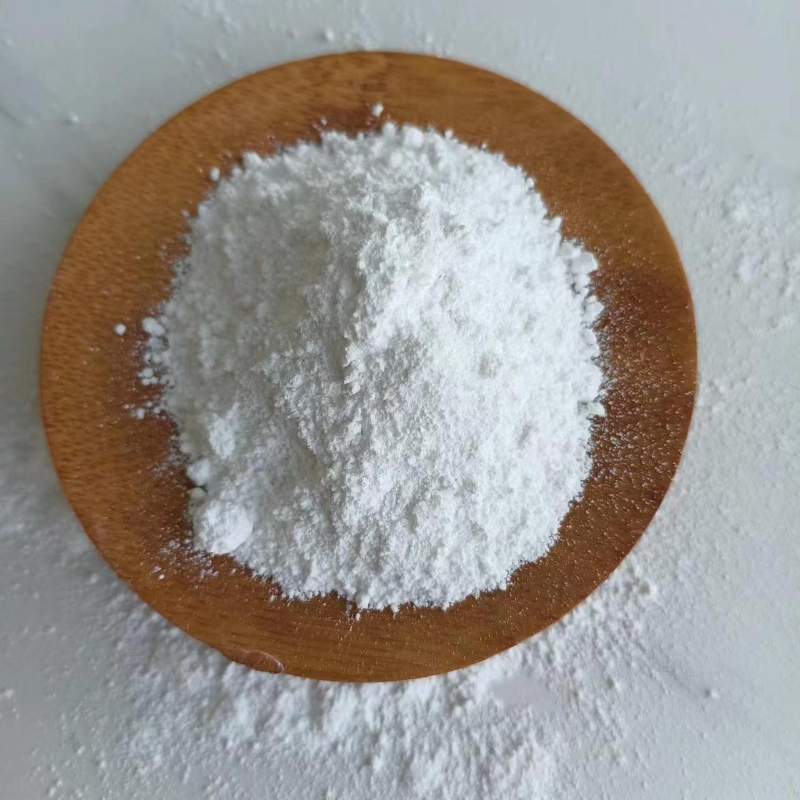-
Categories
-
Pharmaceutical Intermediates
-
Active Pharmaceutical Ingredients
-
Food Additives
- Industrial Coatings
- Agrochemicals
- Dyes and Pigments
- Surfactant
- Flavors and Fragrances
- Chemical Reagents
- Catalyst and Auxiliary
- Natural Products
- Inorganic Chemistry
-
Organic Chemistry
-
Biochemical Engineering
- Analytical Chemistry
- Cosmetic Ingredient
-
Pharmaceutical Intermediates
Promotion
ECHEMI Mall
Wholesale
Weekly Price
Exhibition
News
-
Trade Service
Yimaitong compiles and organizes, please do not reprint without authorization
.
Medical record data The patient is male, 27 years old
.
The main reason was pain in the upper abdomen for 6 months
.
The patient's abdominal pain was intermittent, without radiating pain, and had nothing to do with eating, and there were no predisposing factors to reduce or increase
.
The patient reported weight loss but normal appetite, denied recent history of non-steroidal anti-inflammatory drugs, no changes in bowel habits and steatorrhea, no history of travel, and history of contact with other people with similar symptoms
.
There was no tenderness on abdomen palpation, no lumps were found, and bowel sounds were normal
.
Laboratory examination showed that hemoglobin (Hb) was 16.
9 mg/dL, white blood cell count was 12,700/mm3, and liver and kidney function tests were normal
.
Stool antigen detection and nucleic acid amplification tests (NAATs) are postponed because the patient has no changes in bowel habits
.
Helicobacter pylori stool antigen test was negative
.
Endoscopy of the upper gastrointestinal tract revealed hyperemia of the duodenal mucosa (Figure 1)
.
A biopsy of the duodenum revealed the presence of many binuclear parasites around the villi of the small intestine consistent with Giardia lamblia (Figure 2)
.
(Figure 1 Upper gastrointestinal endoscopy) (Figure 2 Duodenal live) The patient was subsequently treated with metronidazole in the outpatient clinic, and his symptoms resolved within one month
.
Analysis and discussion Giardiasis is a protozoan disease caused by Giardia lamblia parasitic in the human small intestine.
It has been listed as one of the ten main parasitic diseases that endanger human health in the world
.
The disease is not only more common in tropical and subtropical regions, but also cases have been reported in cold regions
.
People of all age groups can be infected, and children, the elderly and the infirm, and those with immune deficiencies are particularly susceptible
.
Patients can have many manifestations, namely asymptomatic (carrier), acute infection or chronic infection
.
In children under two years of age, asymptomatic Giardia infection is associated with growth retardation
.
Acute infection with Giardia has various manifestations, the most common manifestations are diarrhea, fatigue, steatorrhea and abdominal discomfort
.
The incubation period of giardiasis is generally 1 to 2 weeks, with an average of 9 to 15 days.
Symptoms appearing within a week are usually caused by other reasons
.
The symptoms of chronic giardiasis usually include steatorrhea, bloating, weight loss, stunted growth, vitamin deficiency, and malabsorption.
The course of the disease can often last for several years.
About 40% of patients can develop reversible lactose intolerance
.
Pathogenic detection methods, namely the detection of Giardia cysts and trophozoites in samples, are the "gold standards" for diagnosing Giardia infections
.
The diagnosis of Giardia infection can usually be achieved by stool antigen detection (direct immunofluorescence detection).
Studies have confirmed that the detection rate of antigen detection is higher than that of stool microscopy
.
In addition, NAATs can also be used for the diagnosis of Giardia infection
.
In the case of a negative stool test, in addition to biopsy to confirm Giardia infection, endoscopy can also rule out malabsorption syndrome
.
Treatment of Giardia infections includes correcting electrolyte imbalances and vitamin deficiencies while starting antibiotic therapy
.
Patients who are diagnosed and highly suspected of the disease should be treated with anti-pathogen drugs
.
Metronidazole is currently the first choice for the treatment of this disease: adults 200 mg/time, 3 times/d, for 5-7 d, the effect can reach more than 90%; children 15-20 mg/(kg·times), 3 times /d, even serve 5-7 d
.
Generally, the protozoa in the feces can become negative after taking the medicine for 3 days, and the symptoms gradually disappear
.
Other therapeutic drugs also include tinidazole, nitazoxanide, mebendazole, albendazole, furazolidone and so on
.
Duodenal giardiasis is a common intestinal infection, which can have many manifestations, from acute and chronic diarrhea, abdominal pain, nausea, vomiting, flatulence to no obvious clinical symptoms.
For patients with chronic weight loss, Especially in endemic areas and developing countries, the disease should be included in the differential diagnosis
.
References: 1.
Kalas M, Alduaij A, Alkhatib AA (June 07, 2021) Incidental Diagnosis of Duodenal Giardiasis.
Cureus 13(6): e15499.
doi:10.
7759/cureus.
154992.
Compiled by the National Pharmacopoeia Commission.
The Pharmacopoeia of the People’s Republic of China Clinical medication instructions[M].
Beijing: China Medical Science and Technology Press.
2010:864.
3.
Xia Fei, Yang Wei, Wang Xuelian.
et al.
1 case of Giardiasis.
World Chinese Journal of Digestion 2013;21(19):1899-1900.
4 .
Amy Krueger,Jay Schulkin.
et al.
Survey of obstetrician-gynecologists about giardiasis.
Infect Dis Obstet Gynecol.
2007;2007:21261.
doi: 10.
1155/2007/21261.
.
Medical record data The patient is male, 27 years old
.
The main reason was pain in the upper abdomen for 6 months
.
The patient's abdominal pain was intermittent, without radiating pain, and had nothing to do with eating, and there were no predisposing factors to reduce or increase
.
The patient reported weight loss but normal appetite, denied recent history of non-steroidal anti-inflammatory drugs, no changes in bowel habits and steatorrhea, no history of travel, and history of contact with other people with similar symptoms
.
There was no tenderness on abdomen palpation, no lumps were found, and bowel sounds were normal
.
Laboratory examination showed that hemoglobin (Hb) was 16.
9 mg/dL, white blood cell count was 12,700/mm3, and liver and kidney function tests were normal
.
Stool antigen detection and nucleic acid amplification tests (NAATs) are postponed because the patient has no changes in bowel habits
.
Helicobacter pylori stool antigen test was negative
.
Endoscopy of the upper gastrointestinal tract revealed hyperemia of the duodenal mucosa (Figure 1)
.
A biopsy of the duodenum revealed the presence of many binuclear parasites around the villi of the small intestine consistent with Giardia lamblia (Figure 2)
.
(Figure 1 Upper gastrointestinal endoscopy) (Figure 2 Duodenal live) The patient was subsequently treated with metronidazole in the outpatient clinic, and his symptoms resolved within one month
.
Analysis and discussion Giardiasis is a protozoan disease caused by Giardia lamblia parasitic in the human small intestine.
It has been listed as one of the ten main parasitic diseases that endanger human health in the world
.
The disease is not only more common in tropical and subtropical regions, but also cases have been reported in cold regions
.
People of all age groups can be infected, and children, the elderly and the infirm, and those with immune deficiencies are particularly susceptible
.
Patients can have many manifestations, namely asymptomatic (carrier), acute infection or chronic infection
.
In children under two years of age, asymptomatic Giardia infection is associated with growth retardation
.
Acute infection with Giardia has various manifestations, the most common manifestations are diarrhea, fatigue, steatorrhea and abdominal discomfort
.
The incubation period of giardiasis is generally 1 to 2 weeks, with an average of 9 to 15 days.
Symptoms appearing within a week are usually caused by other reasons
.
The symptoms of chronic giardiasis usually include steatorrhea, bloating, weight loss, stunted growth, vitamin deficiency, and malabsorption.
The course of the disease can often last for several years.
About 40% of patients can develop reversible lactose intolerance
.
Pathogenic detection methods, namely the detection of Giardia cysts and trophozoites in samples, are the "gold standards" for diagnosing Giardia infections
.
The diagnosis of Giardia infection can usually be achieved by stool antigen detection (direct immunofluorescence detection).
Studies have confirmed that the detection rate of antigen detection is higher than that of stool microscopy
.
In addition, NAATs can also be used for the diagnosis of Giardia infection
.
In the case of a negative stool test, in addition to biopsy to confirm Giardia infection, endoscopy can also rule out malabsorption syndrome
.
Treatment of Giardia infections includes correcting electrolyte imbalances and vitamin deficiencies while starting antibiotic therapy
.
Patients who are diagnosed and highly suspected of the disease should be treated with anti-pathogen drugs
.
Metronidazole is currently the first choice for the treatment of this disease: adults 200 mg/time, 3 times/d, for 5-7 d, the effect can reach more than 90%; children 15-20 mg/(kg·times), 3 times /d, even serve 5-7 d
.
Generally, the protozoa in the feces can become negative after taking the medicine for 3 days, and the symptoms gradually disappear
.
Other therapeutic drugs also include tinidazole, nitazoxanide, mebendazole, albendazole, furazolidone and so on
.
Duodenal giardiasis is a common intestinal infection, which can have many manifestations, from acute and chronic diarrhea, abdominal pain, nausea, vomiting, flatulence to no obvious clinical symptoms.
For patients with chronic weight loss, Especially in endemic areas and developing countries, the disease should be included in the differential diagnosis
.
References: 1.
Kalas M, Alduaij A, Alkhatib AA (June 07, 2021) Incidental Diagnosis of Duodenal Giardiasis.
Cureus 13(6): e15499.
doi:10.
7759/cureus.
154992.
Compiled by the National Pharmacopoeia Commission.
The Pharmacopoeia of the People’s Republic of China Clinical medication instructions[M].
Beijing: China Medical Science and Technology Press.
2010:864.
3.
Xia Fei, Yang Wei, Wang Xuelian.
et al.
1 case of Giardiasis.
World Chinese Journal of Digestion 2013;21(19):1899-1900.
4 .
Amy Krueger,Jay Schulkin.
et al.
Survey of obstetrician-gynecologists about giardiasis.
Infect Dis Obstet Gynecol.
2007;2007:21261.
doi: 10.
1155/2007/21261.







